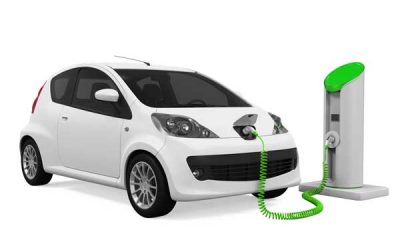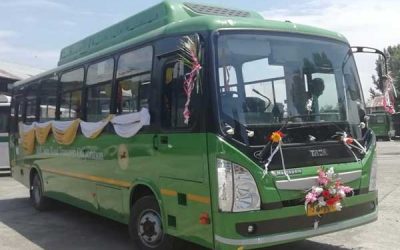For most of the companies, the past few months have been extremely challenging due to the unprecedented breakdown in economic activities, resulting from the Covid-19 pandemic. While enterprises are trying to deal with matters such as changing consumer behaviors, work-from-home setups, and psychological effects of the pandemic on their employees, with telcos like Jio driving digital shifts in the economy.
While this sudden outbreak has impacted many traditional brick-and-mortar businesses to the extent that they had to close their shops, for companies like Jio Platforms, it has accelerated growth, led by a new surge in opportunities.
A gold rush for Jio Platforms
Since the beginning of the pandemic, Jio Platforms, the telecoms and digital arm of the Indian multinational Reliance Industries Limited (RIL) has raised over Rs 15.2 billion (Rs. 1,52,056 crore) by attracting investments in 13 companies.
From the likes of Facebook, Google, Qualcomm, and Intel to General Atlantic and Mubadala, leading tech- and private-equity giants seem to yearning to retain some stake in the world’s most treasured digital player of the moment.
This has not only helped company Reliance Industries Limited (RIL) to pare a literal mountain of debt, but also set it on a clear path of turning RJio into a digital products and services behemoth of a global scale.
RJio stands to leverage a plethora of new-age technologies such as artificial intelligence (AI), IoT, cloud and edge computing, block chain, analytics, and augmented and mixed reality to develop solutions and services that could reshape the user experience for its growing base of customers.
On path to becoming a digital multinational
Amidst the global downturn and massive growth in internet consumption due to the pandemic-enforced work-from-home environment, the recent investments have given Jio a strategic leapfrog.
With most of the population expected to stay indoors even after the lockdown is gradually phased out, the market will need innovations and digital products that could meet customers need at their convenience. Jio Platforms has clearly realized this early on.
Its telecom unit, Jio Infocomm, has already surged past the competition by providing quality services at surprisingly low costs. Now, the company is strategically poised to enter new digital domains by leveraging partnerships.
In this context, the getting together of Reliance Jio (with around 400 million telecom subscribers) and Facebook (with around 300 million Indian users) is specifically important and will help Jio drive growth by potentially catering to a largely dispersed SMB sector of India. (See: Will FB–Jio deal create magic?).
Leveraging the potential of Facebook-owned WhatsApp messenger service, the company has already begun to bring local vendors, independent hawkers, and small ration stores to its Jio Mart platform, for delivering online groceries across 200 cities and towns in India. Its online delivery services are well-backed by Reliance Retail, which is country’s largest retailer in terms of revenue.
According to company sources, Jio has already prepared a roadmap to flesh out its e-commerce services beyond the groceries and is likely to offer a range of merchandise and solutions, competing directly with the likes of Amazon in future.
Mass market for niche consumer tech?
A very significant element of Jio’s recent intents is its focus to become a tech-solutions company.
Besides expanding its offerings as an e-commerce service provider, Jio is also looking at developing cutting-edge next-generation solutions to facilitate the surge in the use of video-based collaborative technologies. In its recently concluded AGM, RIL announced several new initiatives to accomplish its refreshed agenda.
By partnering with Google, for instance, Jio plans to increase the reach of digitization across the length and breadth of India, beyond the current 500+ million Internet users in the country. Jio has also entered into a collaboration with Google to develop an entry-level affordable smartphone with optimizations to the Android operating system and the Play Store.
Another interesting announcement that caught everyone’s attention was the company’s showcasing of a prototype virtual reality (VR) and mixed reality (MR) headset, called Jio Glass at its recent annual general meeting. While the company has refrained from sharing details around its market launch or pricing, it said that the device would work with over 25 applications and connect to the internet via a smartphone cable. Once available to the masses, Jio Glass can be a turning point for India’s video-conferencing market and give users more power to collaborate and connect virtually.
India’s education and health sector are likely to be the biggest gainers of the technology as it will enable schools and medical institutes showcase real time projections through various 3D models. Much will be dependent on the pricing of the product as both VR and MR products have so far remained restricted to niche markets.
A gear-making venture in the making
Reliance has also surprised the telecom gear makers by announcing the development of a made-in-India 5G solution to help global service providers roll out advanced 5G infrastructure. The solution is expected to be ready for field deployments next year.
This is a striking development as it will not only help Jio launch 5G services at a significantly lower cost but also endanger the existence of already pressured companies such as Huawei.
RIL hasn’t yet disclosed the roadmap or its vision to develop 5G solutions. However, 5G gear making may not be a cakewalk, considering the fact that players like Huawei are well-ahead in their tech journeys and Jio will need to do a lot of catching up.
At the same time, Reliance is also understood to be forging partnerships to develop other future technologies such as connected cars, drones, and smart homes.
There is no doubt that Reliance Jio is sitting on a unique hotbed of opportunities. The multiple technology partnerships that it has forged, along with its massive domestic telecom subscriber base, create a formidable combination that bodes well.
However, to prove its mettle globally and conquer new markets, the company will need to test different strategies, diversify its product mix, and move up the value chain.
Table: A quick glance at Jio Platforms investors
| Investor | Stake (%) | Funding (in Rs crore) |
| 9.90 | 43,573.62 | |
| 7.7 | 33,737 | |
| Vista Equity | 2.30 | 11,367 |
| KKR | 2.30 | 11,367 |
| Public Investment Fund (PIF) of Saudi Arabia | 2.30 | 11,367 |
| Silver Lake Partners | 2.08 | 10,202.55 |
| Mubadala | 1.85 | 9,093.60 |
| General Atlantic | 1.34 | 6,598.38 |
| Abu Dhabi Investment Authority | 1.16 | 5,683.50 |
| TPG | 0.93 | 4,546.80 |
| L Catterton | 0.39 | 1,894.50 |
| Intel Capital | 0.39 | 1,894.50 |
| Qualcomm | 0.15 | 730 |
| 32.79 | 152,055 |
Source: RIL, BM Nxt














0 Comments